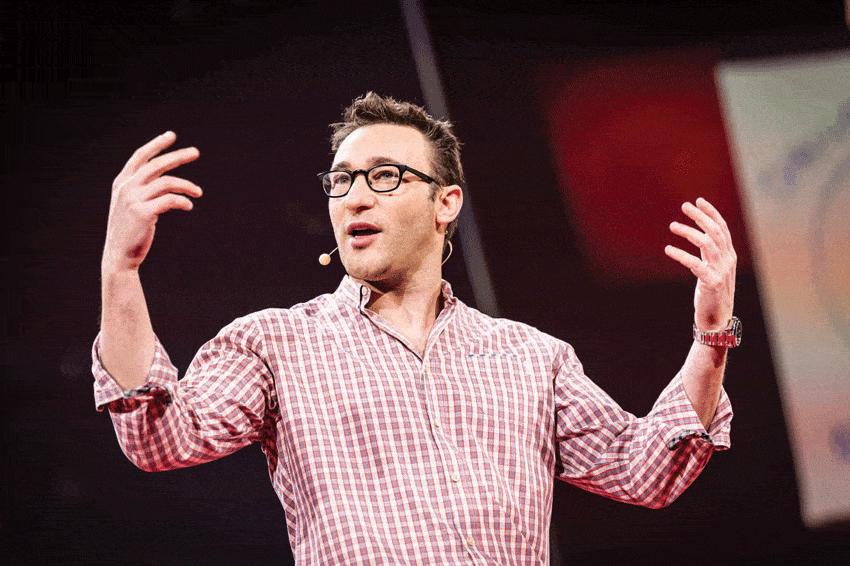
Consent classes sound like a good idea, but will they be effective?
“People don’t buy what you do, they buy why you do it.”
I’ve been watching a few too many Simon Sinek videos on YouTube recently, and this is one of his more famous quotes from a book called Start With Why. For those unfamiliar with him, he is a best-selling author and motivational speaker from the United States. The point Sinek makes in his book is that if you are trying to encourage people to buy a product or a service, it is preferable (even if counterintuitive) to begin your sales pitch with why you do what you do before telling them what you do and how you do it.
I know some of us, myself included, can be cynical about professional motivators, but I find Sinek’s work to be a very worthwhile contribution to corporate culture. This is possibly because he has a knack – unknowingly or not – of repackaging some solid Christian themes for a modern-day, secular work environment.
The quote I’ve just given is one such example. Isn’t “People don’t buy what you do, they buy why you do it” just another way of expressing Pope St Paul VI’s exhortation in Evangelii Nuntiandi, that “modern man listens more willingly to witnesses than to teachers, and if he does listen to teachers, it is because they are witnesses”?
we can embrace this invitation to educate about consent by presenting it in its fuller context, ie within the Church’s teaching on the dignity of the human person
Sinek’s second book, Leaders Eat Last, is another re-expression of Christian ideas. In it, he explains that true leadership is a reversal of the “me first” mentality that characterises too many corporate climbers and claims instead that the most authentic – and successful – leaders are those that take care of the needs of others first.
In an interview about the book, Sinek describes a photograph taken during the terrorist attack at Westgate mall in Kenya by photojournalist Tyler Hicks, who was inside the mall. The photo was of a mother, laying on top of her two young children to protect them from the gunmen who roamed the mall killing people. Sinek said: “That’s what leadership is. That when there is danger, it’s not protecting myself but it’s rather willing to put myself in harm’s way to protect another.”
What is ‘leaders eat last’ if not a repackaging of servant leadership? What is the image of that mother except a modern-day expression of what we will hear in the coming week the story of Christ laying down His life for ours?

This is a long introduction to my column this week, which is actually about the push for specific consent education to be taught in all schools across the country, starting in early years.
A petition started by former Kambala student Chanel Contos for sex education to include “conversations targeted towards girls that talk about issues that affect them more adversely like slut-shaming, sexual coercion, consent, peer pressure” as well as “conversations towards boys that talk about toxic masculinity” has garnered tens of thousands of signatures as well as countless horrific stories from women who tell of sexual assaults or sexual coercion that occurred during their high school years, often perpetrated by boys at neighbouring schools.
The petition is gaining widespread support and comes at a time when sexual assault is also being discussed at a national level. Female staffers on both sides of federal politics have come forward with allegations against male colleagues and a culture that enables and hides crimes and coercive behaviours, demonstrating that these behaviours don’t disappear after high school.
The push for mandatory and universal consent education presents both a challenge and an opportunity for Catholic schools. The challenge is that taken out of the context of the full and beautiful teaching of the Catholic Church on human sexuality, dedicated classes on consent risk setting up a competing standard for when sexual activity is permissible, ie we risk replacing the teaching that sex is a good that should be reserved for marriage between a man and a woman with ‘sex is a good if both parties consent to it,’ which is a much narrower, and much more impoverished, view of sex and sexuality.
The opportunity, however, is that we can embrace this invitation to educate about consent by presenting it in its fuller context, ie within the Church’s teaching on the dignity of the human person, the call to chastity being an expression of belief in that dignity, the understanding of sex as self-gift, rather than self-gratification, the insidious ways in which pornography make us ill-prepared to give and receive that gift, and the truth that every human being is capable and worthy of love in its purest form.
Or, in the words of my friend Simon Sinek: by starting with ‘why.’
Related:
